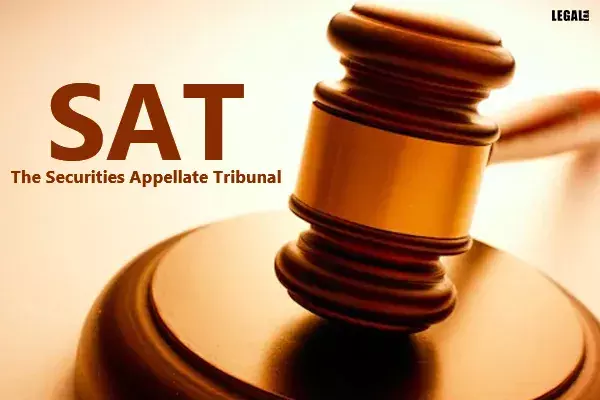SAT directs SEBI to issue fresh orders in the JK employees trust fund case
The Securities Appellate Tribunal (SAT) has directed the market regulator to pass a fresh order within three months on a;

SAT directs SEBI to issue fresh orders in the JK employees trust fund case
The Securities Appellate Tribunal (SAT) has directed the market regulator to pass a fresh order within three months on a plea filed by JK Paper Ltd regarding JK Paper Employees' Welfare Trust and thereby quashed an order passed by markets regulator – Securities and Exchange Board of India (SEBI).
As to the facts of the case, in January 2001, JK Paper Ltd established the Trust and about 97% of the Trust's assets are the company's shares, which works out to around 4.73% of the share capital of JK Paper.
In October 2019, the company submitted an application seeking exemption or relaxation from the strict compliance of Regulation 3(11), 26(2) read with Regulation 31(2)(b)(ii) of the Regulations of 2014. However, this application was rejected by the competent authority of SEBI on 3 February 2020.
As a result, an appeal was filed before SAT. The Tribunal held that the order passed by the competent authority of SEBI was a non-speaking order and that the authority was required to give reasons while rejecting the application. The SAT also directed the CA to pass a fresh order after considering all relevant facts within three months.
On 10 November 2020, the CA of SEBI passed fresh to order and rejected the company's application. The company then approached the SAT.
The bench of justice Tarun Agarwala (presiding officer), justice MT Joshi (judicial member), and Meera Swarup (technical member) opined, "The competent authority (general manager- GM of SEBI) considered the selling of the shares by the Trust as one of the mitigating factors for rejecting the application without considering the fact that the shares were sold to pay the loans which fact has not been disputed by the respondent. We also find that shares can be sold under regulation 3(15)(e) of the Regulations of 2014. The competent authority has also not considered the undertaking is given by the appellant regarding not to buy or sell any shares in future, which according to us was a crucial consideration."
"Consequently, for the reasons stated aforesaid the impugned order cannot be sustained and is quashed. The matter is remitted to the authority of SEBI to pass a fresh order in accordance with law within three months from today considering the application of the appellant seeking exemption or relaxation from the strict compliance of the Regulations of 2014 on merits," the Tribunal says.
It was further stated, "We also find from a reading of the impugned order that the only effort made by the CA was to find fault either of the Company or the Trust with regard to non-compliance of certain provisions of the Regulations and based on such non-compliance the rejection order has been passed which in our opinion is patently erroneous."
During the hearing, SEBI contended that since the order was passed by its competent authority and not by the board, the company cannot file an appeal before the Tribunal.
Relying on an order passed by the Supreme Court on 27 January 2020, the SAT stated, "...it is no longer open for SEBI to contend that the disposal of the complaint is not appealable for the reason which is required to be given. The Supreme Court has held that SEBI is required to deal with the complaint positively and objectively."
"In the instant case, the application of the appellant seeking exemption or relaxation from the strict compliance of the Regulations was rejected. The rights of the appellant were adversely affected. The appellant is an aggrieved person and has a right to challenge the action of the respondent by filing the appeal under section 15T of the Act. The appeal, in our opinion, is maintainable," the Tribunal says.
The Tribunal concluded by stating, "Since we have set aside the order on the ground that the application seeking exemption/relaxation has not been correctly decided we are not dealing with the aspect of applicability or non-applicability of the Regulations as raised by the appellant which issue shall remain open and will be reconsidered by the Competent Authority."

